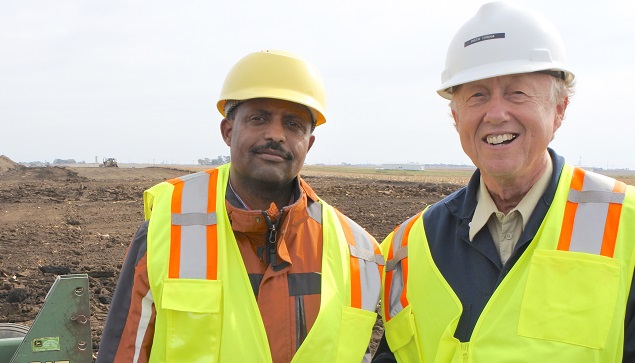 |
| Mehari Tekeste, left, and Mark Hanna at the experimental site. | Photo: Iowa State University |
A team of researchers at Iowa State University’s College of Agriculture and Life Sciences will conduct a five-year study that will examine the impact of pipeline construction on crop production and soil compaction. The project, which is funded by Dakota Access Pipeline LLC, will collect data through 2021 on section of university-owned farmland traversed by the Dakota Access Pipeline.
“The overall goal of the project is to quantify the impact of construction utilities equipment, field traffic and deep tillage on crop yield and soil compaction,” according to a university news release.
Mehari Tekeste, an assistant professor of agricultural and biosystems engineering, and Mark Hanna, an extension agricultural engineer, will lead the multiyear project.
“We hope our research will develop data to support future recommendations on the restoration of agricultural soil and crop productivity to pre-construction conditions,” Tekeste said. “This will be of benefit to industry and governmental institutions, as well as other researchers and extension specialists.
Dakota Access has long been committed to minimizing potential impacts from pipeline installation and continues to work with landowners across Iowa to ensure land is restored to preconstruction conditions. Specifically, these efforts included the development of a comprehensive Agricultural Mitigation Plan and the enlistment of two independent contractors to advise and monitor the acquisition, construction and reclamation processes.